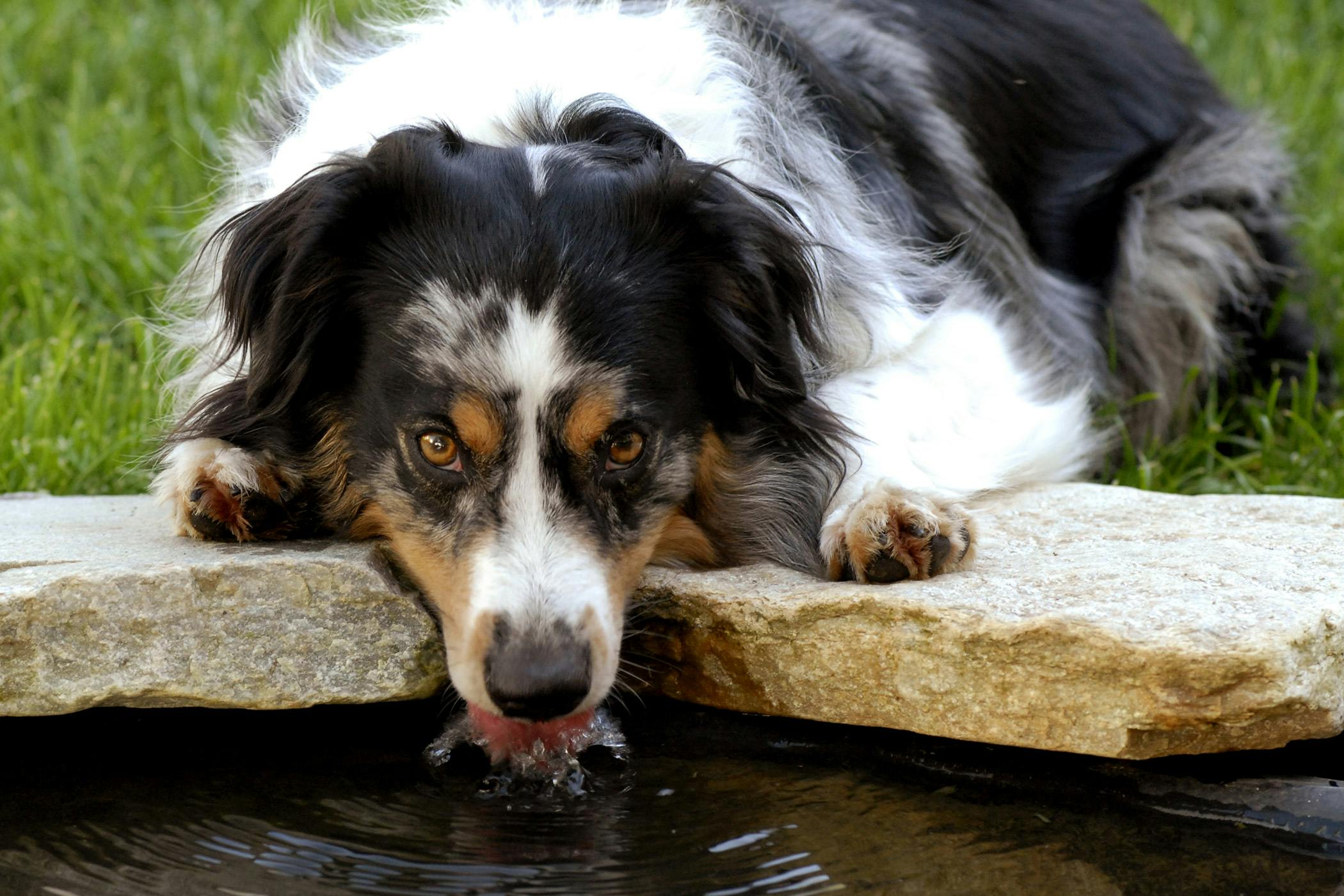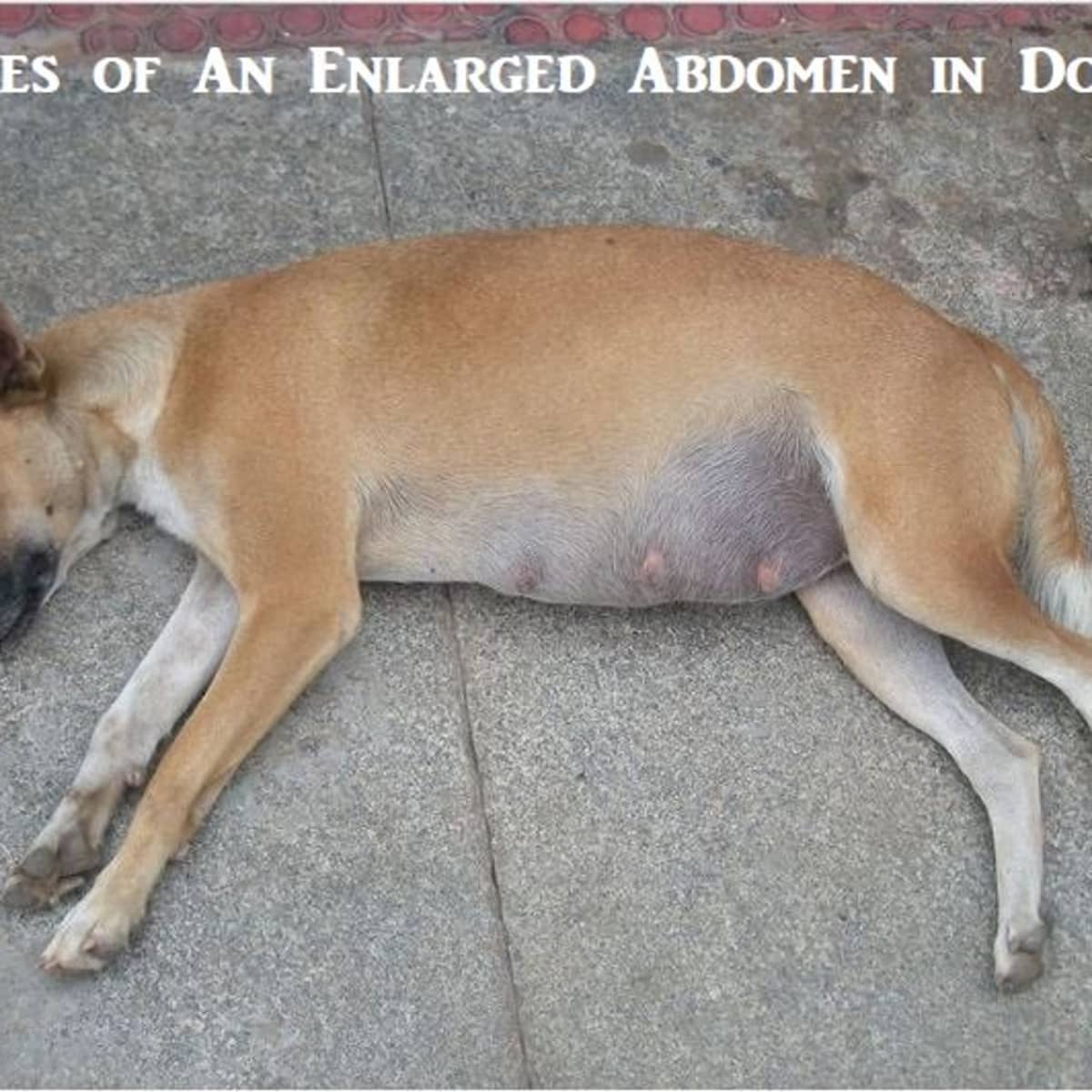
An inflamed liver will severely compromise the health of your dog. Your veterinarian can help you decide if these.

If your dog has chronic liver disease your veterinarian might suggest dietary changes including store bought or prescription foods that are designed to help promote healthy liver function.
Enlarged canine liver. There are a number of diseases that can affect the functioning of a dogs liver and lead to enlargement. An enlarged liver in dogs can often be accompanied by ascites or fluid accumulation in the abdomen. Those with ascites will have an abnormally swollen belly.
An enlarged liver is most commonly found in older dogs. It is important to identify and diagnose. Dog Liver Cancer.
Sadly in some cases an enlarged liver may be a sign of liver cancer affecting one or more lobes of the liver. Liver cancer in dogs may originate primarily from the liver or the liver cancer may occur secondary to another cancer through a process thats known as metastasis Liver cancer is a common finding in older dogs. There are a number of diseases that can affect the functioning of a dogs liver and lead to enlargement.
An enlarged liver in dogs can often be accompanied by ascites or fluid accumulation in the abdomen. Those with ascites will have an abnormally swollen belly. An enlarged liver is most commonly found in older dogs.
What is the most common cause of an enlarged liver. Enlarged liver is usually caused by liver disorders related to excessive alcohol use congestive heart failure glycogen storage disease viral hepatitis liver cancer cirrhosis and steatosis fat in the liver. What foods cause liver damage in dogs.
An enlarged liver can be a sign of liver disease in a dog. However puppies have larger livers compared to older dogs so a larger liver may not be cause for alarm in younger dogs. Liver disease is more common in older adult dogs than it is in younger dogs.
The word hepatomegaly is used to describe an enlargement of the liver in dogs. Usually if your dog has been diagnosed with an enlarged liver its due to a condition or disease that interferes with how his liver is functioning. If your dog has been diagnosed with a condition or disease that is enlarging his or her liver you may need to start giving.
There are a number of diseases that can affect the functioning of a dogs liver and lead to enlargement. An enlarged liver in dogs can often be accompanied by ascites or fluid accumulation in the abdomen. Those with ascites will have an abnormally swollen belly.
An enlarged liver is most commonly found in older dogs. If your dog has liver cancer chemotherapy or radiation could also be part of the treatment recommendations. Dog Food for Liver Disease.
If your dog has chronic liver disease your veterinarian might suggest dietary changes including store bought or prescription foods that are designed to help promote healthy liver function. Your veterinarian can help you decide if these. This illness is caused by triglyceride accumulation in a dogs liver and leads to liver damage.
Untreated Diseases Liver problems often come as a result of some untreated condition. The liver is enlarged and has a honeycomb appearance which is characteristic of hepatocutaneous syndrome and fibrotic end-stage liver disease without hepatocutaneous syndrome. An overall decrease in echogenicity with an increase in size can be caused by cholangitis or cholangiohepatitis.
As liver disease progresses and your dogs liver stops being able to do the things it normally does you may notice more obvious things. These include a yellow discoloration to your dogs skin the inner aspect of their ear flaps or to the white of their eyes. This discoloration is called jaundice.
An inflamed liver will severely compromise the health of your dog. Its important to note that taking a wait and see approach or failing to treat inflammation can result in death of your dog. Liver inflammation can be idiopathic meaning it happens for no known reason.
Canine liver disease has multiple causes including infection cancer medications and various toxins. Symptoms include an enlarged abdomen vomiting weight loss and diarrhea. Treatment options are surgery medications and dietary change including supplements.
If in the recent past the dog has had an abdominal injury then your canine could be prone to suffering from an enlarged liver. Different dog illnesses like diabetes and encephalopathy can also cause this condition. In some dogs it can be a genetic defect.
As in Skye terriers Doberman Bedlington terriers etc. Liver neoplasia hepatitis storage of excess fat in the liver tissues or. Liver enlargement or abdominal pain on palpation could point toward a liver problem such as liver cancer and blood work can reveal liver abnormalities that also lead to a suspicion of cancer.
Signs that a dog has liver disease can vary and include loss of appetite vomiting stomach ulceration diarrhea seizures or other neurologic problems fever blood clotting problems jaundice a yellow tinge noticeable in the skin mucous membranes and eyes fluid collection in the abdomen excessive urination and thirst changes in liver size and weight loss. A dog that excretes stool without normal pigmentation could indicate liver disease. It occurs when there is obstruction of the biliary system and normal bile pigments are not secreted to cause the normal dark color of stool.
An enlarged liver on a radiograph is called hepatomegaly an abnormally small one is called microhepatica. A Ultrasound image of a diffusely enlarged canine liver with a mildly hyperechoic but homogeneous echotexture. The histologic diagnosis was amyloidosis.
B Ultrasound image of a dog that was being treated with oral prednisone. The liver is enlarged and diffusely hyperechoic with rounded borders. Update on Hepatobiliary Imaging 441.
What are the signs of a dog with enlarged liver. Signs that a dog has liver disease can vary and include loss of appetite vomiting stomach ulceration diarrhea seizures or other neurologic problems fever blood clotting problems jaundice a yellow tinge noticeable in the skin mucous membranes and eyes fluid collection in the abdomen excessive urination and. The liver stores energy and iron for future use by the body helps regulate blood clotting and clears old red blood cells from circulation.
The liver secretes its waste products in the form of bile a substance which also aids in the digestion of fats. Your veterinarian may recommend a blood test to check your dogs liver values.